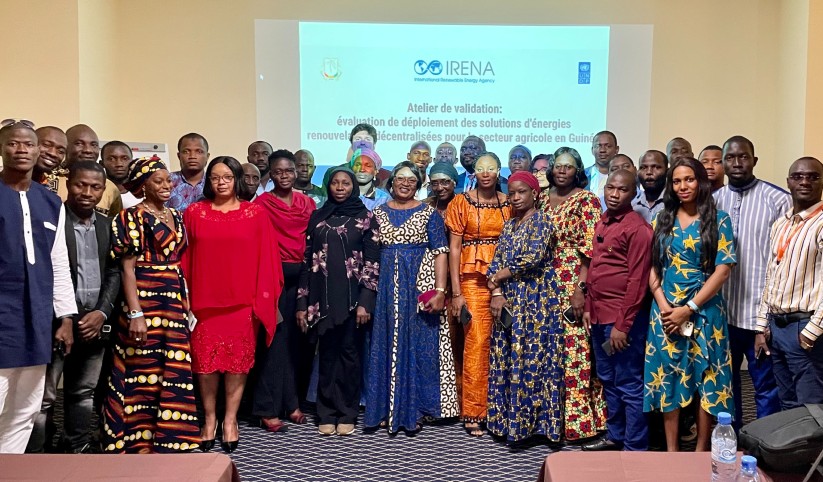

Guinea Validates Assessment of Decentralised Renewables to Power its Agri-food Sector
The International Renewable Energy Agency (IRENA) in collaboration with the Government of Guinea and the United Nations Development Programme (UNDP) country office organised a workshop on 13-14 February 2024 in Conakry. The workshop aimed to present and validate the market assessment report commissioned by IRENA to assess the deployment of decentralised renewable energy (DRE) solutions for powering the agriculture sector in Guinea.

With vast renewable energy potential, DRE solutions can play a crucial role in transforming the agri-food systems in Guinea, especially in rural areas where access to modern energy services is low. Within this context, IRENA supported the Government of Guinea to conduct an assessment on DRE market ecosystem. The assessment also seeks to identify specific opportunities of DRE integration for powering specific stages of the rice, maize, and vegetables value chains in Guinea, which are of strategic importance to Guinea’s food balance sheet.
The findings of the assessment indicate that while the DRE market segment is relatively nascent in Guinea, there is a considerable market potential for its deployment in the agriculture sector given the high willingness of surveyed commercial small-holder farmers and productive-use service providers to adopt DRE solutions to power agricultural processes. However, achieving the total addressable market potential requires enabling policy and regulatory frameworks as well as facilitating access to low-cost financing to create the right market conditions to stimulate local demand and strengthen the supply of DRE solutions.
The specific objectives of the validation workshop were to conduct an in-depth review of the findings of the assessment report, gather inputs on the identified barriers to DRE integration in the agricultural sector, stimulate discussions and ensure buy-in of key stakeholders on the recommendations and roadmap of priority actions recommended in the report. The priority actions include a long-term strategy that integrates DRE in agricultural programmes, and a country programme with tailored technical and financial solutions to support DRE uptake.
The workshop was attended by key stakeholders in the energy and agriculture sectors, including government institutions, private sector, development partners such as the African Development Bank and the World Bank. For more information, contact: EAccess@irena.org.